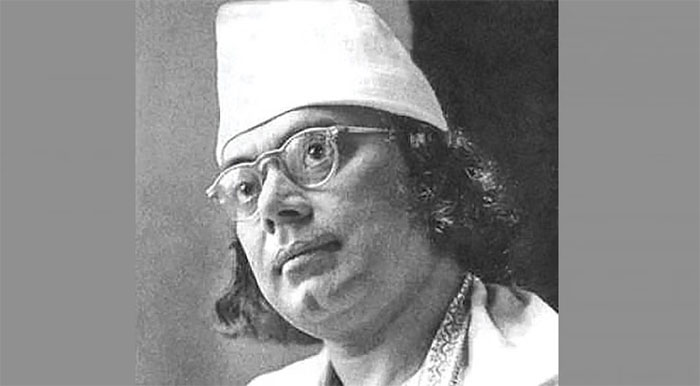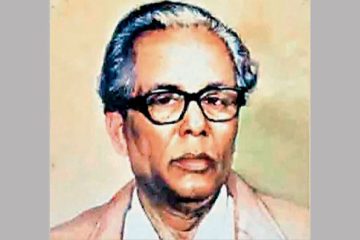Cultural Desk : dhakamirror.com
Today is the 125th birth anniversary of national poet Kazi Nazrul Islam.
The birth anniversary of Nazrul, widely known as the rebel poet, is observed in Bangladesh on Jyaishtha 11, according to the Bangla calendar.
Nazrul, a poet, lyricist, composer, playwright, novelist, revolutionary and journalist, sang equally for freedom and love.
According to Nazrul Institute, in his short artistic career spanning just over 20 years, before he lost his speech in 1941, Nazrul penned 3,174 songs, 600 poems, three novels and 43 essays.
Different government and socio-cultural organisations, television channels and radio stations have taken elaborate programmes to mark the day.
The day’s programme will begin with placing wreaths at the poet’s grave beside the Dhaka University Central Mosque this morning.
The cultural affairs ministry in association with Kabi Nazrul Institute and other departments and organisations under the ministry will place floral wreaths at the grave of Nazrul at 6:30am.
The main celebration programme of the ministry will be held at the Bangladesh National Museum in the capital at 3:45pm.
Besides, Bangladesh Shilpakala Academy, Bangla Academy, Chhayanaut, Kabi Nazrul Institute and others will pay tribute to Nazrul by organising different programmes.
Bangladesh Shilpakala Academy will organise a programme comprising discussion and cultural shows at its National Theatre Hall at 6:30.
Chhayanaut has organised a three-day festival at its auditorium at Dhanmondi in Dhaka from May 24 to 26.
To mark the day, Bangladesh Betar, Bangladesh Television and private television channels and radio stations will air special programmes.
Nazrul was born into a poor family at Churulia of Bardhawan in West Bengal of India on Jaishthya 11, 1306.
He had to leave his study at an early age for earning his living.
He left school and joined a Churulia-based professional ‘leto’ troupe at the age of nine. While working for the troupe, he was introduced to Bangla and Sanskrit literature.
Afterwards, he worked with a ‘kabi gaan’ troupe and also took up a job at a bakery.
Nazrul’s talent grabbed the attention of police officer Kazi Rafizullah. He gave him shelter at his house and got Nazrul enrolled in Class VII at Darirampur School.
Nazrul joined the British Army in 1917 as a soldier.
While serving in the army, for two years and a half, the young poet was introduced to Persian literature and learnt to play different instruments.
His life as a journalist began with the daily Nabajug in 1920. He started a fortnightly magazine Dhumketu in 1922.
Nazrul was sentenced to one year in prison for his political poem Anandamoyeer Agomone. While in the prison, the poet wrote his masterpieces Aj Srishti Sukher Ullashe, Obhishap, Jater Namey Bajjati, Bhangar Gaan and Shikal Para Chhal.
The rebel poet is particularly known for his unique and unparalleled poem Bidrohi.
In his creative life, Nazrul also worked as a lyricist and music composer for the popular music brand HMV.
Nazrul died in Dhaka on Bhadra 12, 1383. He was buried beside the Dhaka University central mosque.





















